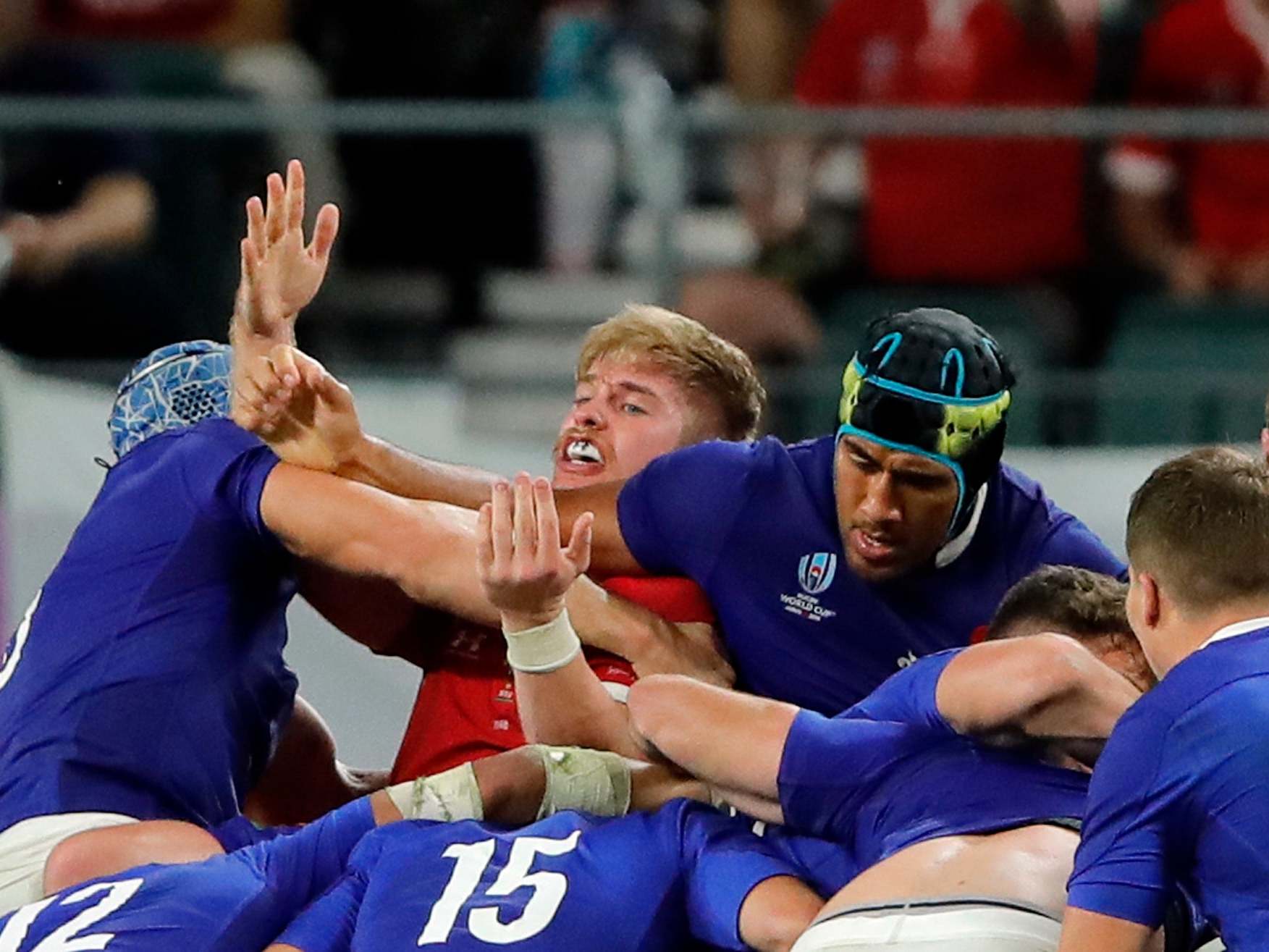Rugby World Cup 2019: Sebastian Vahaamahina, Sam Warburton and how red card history came full-circle
Just as when Wales and France met in the semi-final in 2011, the team that won did not deserve to

Your support helps us to tell the story
From reproductive rights to climate change to Big Tech, The Independent is on the ground when the story is developing. Whether it's investigating the financials of Elon Musk's pro-Trump PAC or producing our latest documentary, 'The A Word', which shines a light on the American women fighting for reproductive rights, we know how important it is to parse out the facts from the messaging.
At such a critical moment in US history, we need reporters on the ground. Your donation allows us to keep sending journalists to speak to both sides of the story.
The Independent is trusted by Americans across the entire political spectrum. And unlike many other quality news outlets, we choose not to lock Americans out of our reporting and analysis with paywalls. We believe quality journalism should be available to everyone, paid for by those who can afford it.
Your support makes all the difference.“Rolland reaches into his pocket and pulls out the red card. With his right hand, he holds it high above his head, with his left he points me to the touchline. For a split second my mind goes blank, just unable to compute what I’m seeing. Then a single thought goes through my head. Don’t complain. Don’t argue, don’t remonstrate, don’t protest.”
Nearly eight years after being sent off in what was at the time the biggest match of his career, Sam Warburton reflects in his book Open Side about the infamous red card against France in the 2011 Rugby World Cup semi-final. Who’d have thought that a month later, eight years and five days on from that fateful day, the story would be oh so similar.
A red card, a second-half Welsh fightback and World Cup hopes on the line, only this time it wasn’t Wales going home. This time, it wasn’t the Wales captain sent-off, but the hero-to-villain French lock Sebastien Vahaamahina.
This time, there was no controversy surrounding the dismissal. A similar acceptance, but no doubt at all.
There are many similarities to 2011 but it’s the differences that make this story a happy ending for Wales. Once again, the team that won did not deserve to, not by a country mile, and in an instant a red-card offence completely changed the outlook of the match. For Warburton’s tip-tackle on Vincent Clerc, we can now read Vahaamahina’s astonishing deliberate elbow on Aaron Wainwright – astonishing in that just how did he expect to get away with it?
Jacques Brunel had no complaints, the outgoing French head coach having been let down by someone he had returned to in order to give a struggling French pack a bit of bite. And so he did in the fifth minute when he bundled his way over the line to open the scoring in a rampant first half for Les Bleus.
Warren Gatland, Brunel’s counterpart, had sympathy for Vahaamahina, perhaps remembering the painful feeling of having a player of his own sent off on such a grand stage. “Unfortunately that's what rugby is about now – it's heat of the moment stuff and he made an error of judgement,” the Kiwi said.
But that understanding cast over the fact that on this performance, Wales deserved to go home. France were the better side by a long distance and it was nigh-on impossible to work out how they had not won the match: 157 more metres carried, 10 more defenders beaten 10 fewer missed tackle, 12 more offloads. Everything said that France would cause the upset of the quarter-finals that we were waiting for.

Only they snatched defeat from the jaws of victory, mistakes that Brunel criticised in what looks set to be his final post-match press conference not just as France boss but as a rugby coach at all. Brunel said: “We should have reacted differently. We didn’t show enough character because we had opportunities maybe not to kill the match but stretch the lead beyond six, which is why in the outcome of the match it’s difficult to accept.”
It would be unfair to say this was karma for 2011. Warburton’s tackle was illegal, and while the debate raged around whether it was fair, a penalty, yellow or red back then, nowadays it would result in the harshest form of sanction more often than not. Vahaamahina, however much testosterone was coursing through his veins – as Warren Gatland put it – would’ve been red in any generation.
Yet the similarities from 2011 to 2018 are uncanny in what are now the only two World Cup meetings between these two nations, only this time Wales dug that little bit deeper to get out of trouble and find the answer to prolong their World Cup journey. That’s the difference.
Join our commenting forum
Join thought-provoking conversations, follow other Independent readers and see their replies
Comments